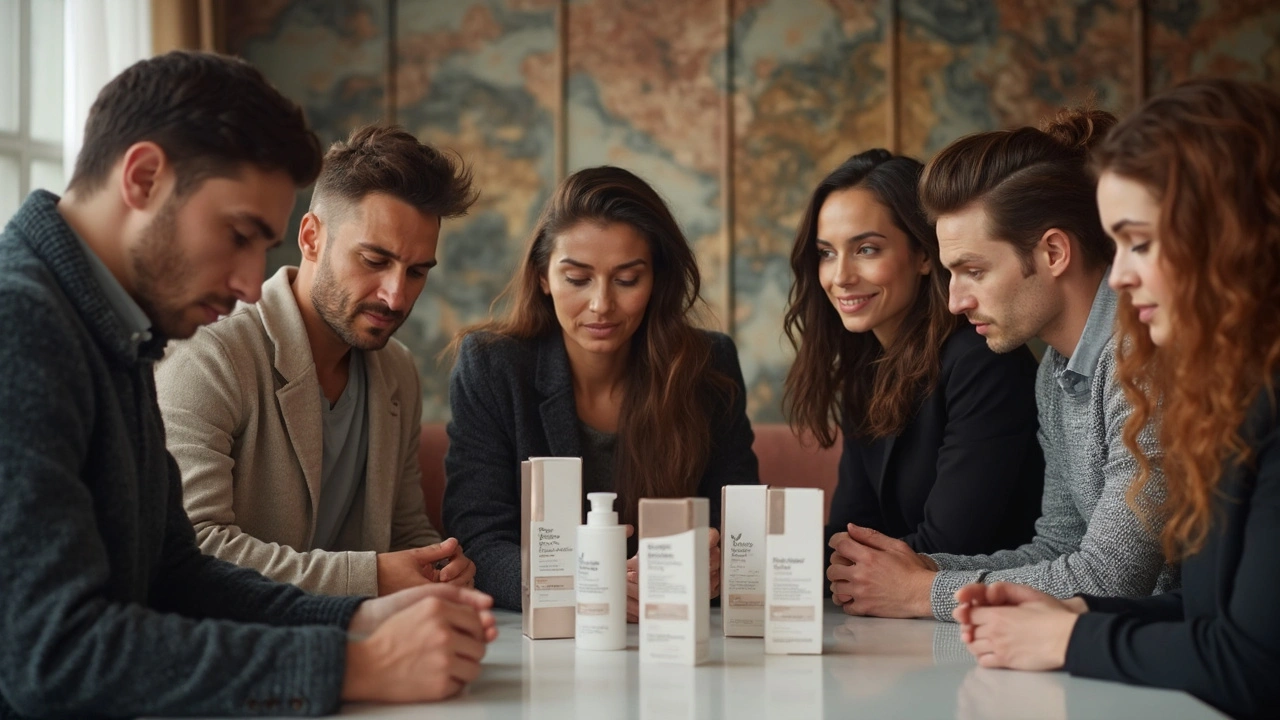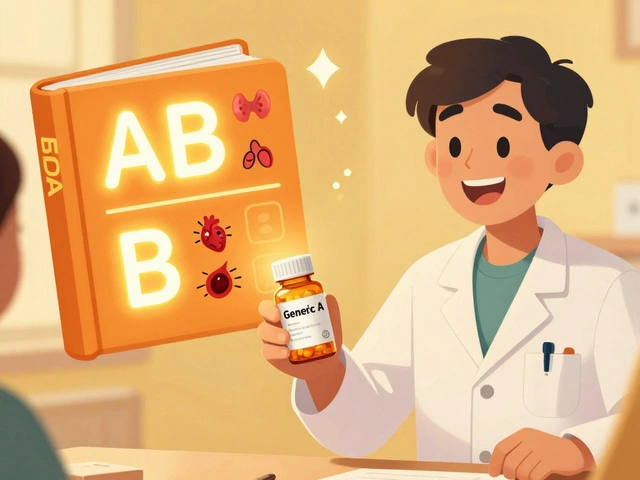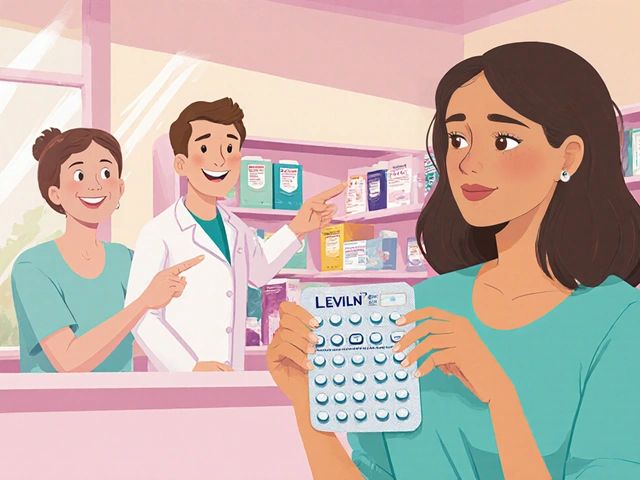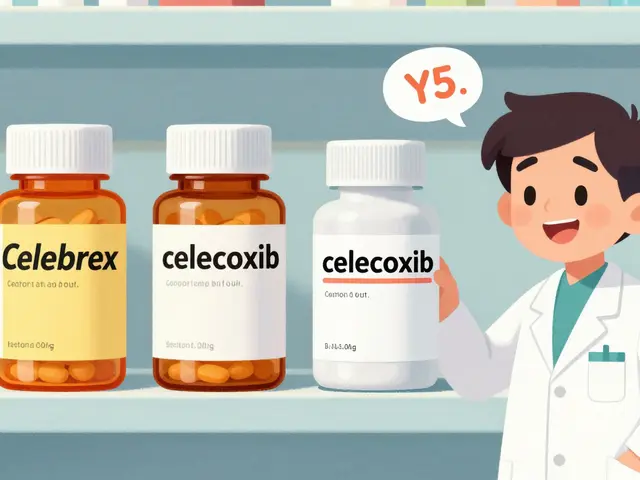Androgenic alopecia, or pattern hair loss, isn't just a fancy term. It's a very real, very common condition affecting millions globally. Ever noticed someone with thinning hair? It's likely due to this condition. What you might not know is that it's influenced by genetics and hormones. But don't lose hope just yet; there are medications that can really help.
Let's break it down. Androgenic alopecia can affect both men and women, though it often shows up differently. In men, it's that familiar receding hairline or bald spot on top. Women might notice overall thinning of their hair. So what's behind this hair loss drama? It mostly boils down to your genes and the hormone DHT, which stands for dihydrotestosterone. Sounds complicated, but it just means this stuff targets hair follicles, shrinking them over time.
So, what can you do? Plenty. Medications like Minoxidil and Finasteride can slow hair loss and even play dermal fairy godmother to your hair by encouraging regrowth. But here's the kicker: they don't work for everyone and often require long-term commitment. Still, they've given many folks a fighting chance.
Stick around, and we'll dive into the details, give you all the need-to-know facts, and share tips on making the most of your treatment plan. After all, knowledge is power, especially when it comes to keeping your hair where it belongs—on your head.
- What is Androgenic Alopecia?
- Causes and Risk Factors
- Popular Hair Loss Medications
- Tips for Effective Treatment
What is Androgenic Alopecia?
Androgenic alopecia is a pretty common form of hair loss. You might know it as male or female pattern baldness. But the name tells you what's going on: it involves androgens—those hormones that include testosterone—and 'alopecia,' which is just a fancy term for hair loss. This condition makes up a significant percentage of hair loss cases among adults.
So, let's get into the nitty-gritty. Androgenic alopecia happens when hair follicles shrink due to androgens. It's mostly due to your genes and how your body reacts to these hormones. In most men, it shows up as a receding hairline and bald spots, usually in a predictable pattern. Women generally see more of an overall thinning, especially around the crown of their head.
The Genetics Factor
As much as we'd like to blame something else, genes play a major role here. If your family has a history of baldness, there's a good chance you'll deal with it too. You inherit this pattern from both sides of the family, so thanks, Mom and Dad!
The Role of DHT
DHT, or dihydrotestosterone, is a key player. It's derived from testosterone—a hormone more common in guys but also present in gals. DHT attaches to hair follicles, which makes them shrink. Smaller follicles mean shorter hair growth cycles and ultimately, finer hair until it stops growing completely.
Facts and Figures
| Measure | Men | Women |
|---|---|---|
| Age of Onset | 20s-30s | 40s-50s |
| Percentage Affected by Age 50 | 50% | 25% |
Understanding androgenic alopecia at its core is the first step toward tackling it. Knowing what you're up against helps in choosing the right hair loss medications or treatments. In the end, while genetics seem to hold the cards, science and treatment give you a few tricks up your sleeve.
Causes and Risk Factors
So, what's really causing androgenic alopecia? Let's get into the nitty-gritty. Primarily, you're looking at the duo of genetics and hormones playing the lead roles in this hair loss saga. If mom, dad, or even grandma had pattern hair loss, there's a solid chance you've inherited the potential for it too.
Genetics and Hormones
Your genetic makeup determines how susceptible your hair follicles are to a hormone called DHT—that's dihydrotestosterone, for those keeping score at home. DHT comes from testosterone, a hormone present in both men and women. When it binds to receptors in your hair follicles, it can put the brakes on hair growth.
Everybody's got DHT, but if your follicles are sensitive to it, then it can lead to hair loss over time. Once the follicles shrink enough, the hair doesn't grow back as it used to, leading to those visible signs of thinning.
Age and Other Factors
Age can also play a part. As you get older, the risk factor goes up—just like those creaks in your knees. Nutritional deficiencies, stress, and even some medical conditions might play supporting roles, but genetics and DHT are the stars of this show.
Statistics in Play
Check this out: Studies show that by age 50, about 50% of men and around 25% of women experience some degree of pattern hair loss. Kind of puts things in perspective, right?
To sum up, your family history is your biggest clue. Keep an eye out for those early signs and don’t shy away from discussing them with a healthcare professional. Remember, knowing the cause is half the battle won.

Popular Hair Loss Medications
When it comes to tackling hair loss, two medications often steal the spotlight: Minoxidil and Finasteride. These treatments have earned their stripes in the world of androgenic alopecia and are worth understanding.
Minoxidil
You’ve probably heard of Minoxidil because it's all over the drugstore shelves. Originally meant to treat high blood pressure, it surprised everyone when it started growing hair as a side effect. Lucky us! You’ll find it in a liquid or foam, which you apply directly to your scalp. It’s great for both men and women, and the best part? You don’t even need a prescription.
Consistency is key with Minoxidil. Most folks use it twice daily for the best results. Don’t expect miracles overnight, though. It usually takes a few months to see visible change, but patience often pays off.
Finasteride
Finasteride is mainly for the gents. Why, you ask? Well, it plays hardball with DHT, the sneaky hormone that conspires with your genes to make hair go poof. It's usually in pill form—one a day keeps the hair witch away. Some studies suggest it can reduce DHT levels in the scalp by about 60%, which is pretty impressive.
But here’s the kicker: Finasteride is a prescription medication, so you’ll need to chat with your doctor first. And like Minoxidil, you need to keep at it. Quit the meds, and you might lose those hair gains.
Are They Safe?
Generally, yes! But, just like any meds, they come with potential side effects. Minoxidil can cause an itchy or flaky scalp in some cases. Finasteride might affect sexual function, but this isn't super common.
| Medication | Usage | Primary Benefit |
|---|---|---|
| Minoxidil | Topical, twice daily | Stimulates hair growth in men and women |
| Finasteride | Oral, once daily | Reduces DHT to prevent hair loss in men |
All in all, these medications have helped many fight the battle against hair loss. As with any treatment, being informed and consulting with a healthcare professional is the best strategy. Stick around for the next section where we’ll share tips on maximizing your treatment success.
Tips for Effective Treatment
Okay, so you've decided to tackle androgenic alopecia head-on, and you're ready to dive into the world of hair loss solutions. First off, kudos for taking the leap! Let's make sure you set yourself up for success with some practical tips.
Stick with Your Routine
Consistency is your best friend. Most medications for hair loss need time to work their magic, often several months before you see real progress. Set reminders, maybe even involve a buddy or loved one to keep you on track. Missing a dose now and then? Not a disaster, but aim to be as regular as possible.
Be Realistic
We're all looking for that miracle cure, but it's crucial to manage your expectations. Not everyone will experience the same results with medications like Minoxidil or Finasteride. Some might see a total comeback, while others only notice slower thinning. Keep your mind open to different outcomes.
Consult a Specialist
Before you dive too deep, a pro opinion can be invaluable. See a dermatologist or a trichologist (yep, that's a hair expert) to tailor a treatment plan just for you. They can also screen out any unexpected issues that might be affecting your hair.
Watch Your Diet
Ever heard the phrase, 'You are what you eat'? Your hair would agree! A healthy diet boosts your obvious health and plays an important role in your hair's well-being too. Stock up on protein, iron, and omega-3 fatty acids. Not sure where to start? Check this quick list:
- Lean meats and fish
- Nuts and seeds
- Leafy greens
- Whole grains
Medications aren't magic potions, but with these pointers, you're giving them the best shot at working. Keep it realistic, stay the course, and don't hesitate to ask an expert if you're unsure. Who knows, you might just find that your hair starts behaving a little bit better soon.







Nancy N.
March 21, 2025 AT 19:05i just started using minoxidil and my scalp is so itchy lol
Phillip Lee
March 22, 2025 AT 17:54genetics aren't destiny they're a starting point. if your dad went bald at 30 you're not doomed you're just playing with loaded dice. the real power is in consistency not hope
Katie Wilson
March 23, 2025 AT 03:21finasteride gave me brain fog and zero hair growth so i quit. now i just wear hats and pretend i chose this look. also my girlfriend says i look more mysterious now so maybe it's a win
Shivani Tipnis
March 24, 2025 AT 09:20you think this is bad wait till you hit 40 and your eyebrows start thinning too. this is just phase one of the great hair apocalypse. fight hard or wear a wig and own it
Cindy Fitrasari S.
March 25, 2025 AT 07:17i read this whole thing and i just feel seen. i've been too scared to even try anything because i dont want to waste money or deal with side effects. maybe i'll talk to my dermatologist this week
Priyamvada Toshniwal
March 26, 2025 AT 00:23minoxidil works for some people but dont stress if it doesnt work for you. i tried it for 8 months and got nothing. then i started taking biotin and eating more salmon and my hair stopped falling out like crazy. sometimes its just about giving your body what it needs
Denise Wood
March 27, 2025 AT 02:26just a quick note: minoxidil foam is way less messy than the liquid. i used the liquid for 3 months and it ruined all my pillowcases. foam = life changer. also dont wash your hair for 4 hours after applying. trust me
Andrew Butler
March 28, 2025 AT 06:47youre all missing the point. this is just the pharmaceutical-industrial complex selling you a solution to a problem they engineered. dht isnt the enemy its your bodies natural regulation system. suppressing it with chemicals is like cutting off your toes because you stubbed them
Varun Gupta
March 30, 2025 AT 06:12the real cause? 5g towers and glyphosate. the government knows. they dont want you to have hair because its a sign of virility. also finasteride is a mind control drug. i saw it on a reddit thread from 2014
Amy Reynal
March 31, 2025 AT 02:11let me tell you about my cousin in kerala who stopped using shampoo for 11 years and grew the longest hair youve ever seen. she washed it with soapnut powder and prayed to ganesha every morning. now shes 62 and looks like a goddess. maybe the answer isnt in a bottle but in tradition. also dont forget to comb your hair 100 strokes before bed. its in the ayurvedic texts
Erick Horn
April 1, 2025 AT 06:30so you pay for a pill to stop your body from doing what it naturally does. brilliant. next youll be taking pills to stop aging. or breathing
Lidia Hertel
April 3, 2025 AT 05:19my mum had thinning hair in her 50s and she started using rosemary oil every night. now at 72 her hair is still thick and she swears by it. i started using it too and honestly its been 6 months and i can feel a difference. also its cheap and smells amazing. no prescription needed. just warm some oil and massage it in before bed. its like a little self care ritual
Chris Bock
April 4, 2025 AT 23:43everything is temporary. even hair. embrace the void
Alyson Knisel
April 6, 2025 AT 10:52i tried finasteride for 4 months. felt fine. no side effects. but i stopped because i got scared of what it might do later. now i just let it go. my hair is thin but my peace of mind is thicker
Jelisa Cameron- Humphrey
April 7, 2025 AT 03:58the real issue here is not dht or genetics its systemic inflammation. when your gut is leaky your immune system goes haywire and attacks hair follicles. fix your microbiome with fermented foods and probiotics and youll see changes even without meds. also avoid gluten if you have a sensitivity. its not magic its biochemistry
Lee Lach
April 8, 2025 AT 23:19the data is manipulated. the clinical trials for minoxidil are funded by pharmaceutical companies. the placebo group was given saline solution while the treatment group got the same solution with 5% minoxidil. they called it a double blind study but the researchers knew who got what. the real effect size is 0.8%. you are being sold a mirage
Tracy McKee
April 10, 2025 AT 07:41you people are so naive. you think a cream or pill fixes it? no. you need to fix your lifestyle. youre eating junk sleeping bad and stressing over everything. of course your hair is falling out. stop blaming dht and start blaming your life choices
Abigail M. Bautista
April 10, 2025 AT 18:26ive been thinning since 25. tried everything. nothing worked. now i just shave it all off. looks better anyway
Phillip Lee
April 12, 2025 AT 09:32the ones who shave it off are the ones who won. they stopped fighting biology and started owning it. thats real strength not chasing a fantasy with a bottle